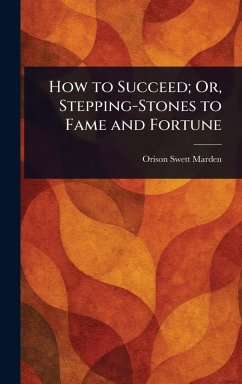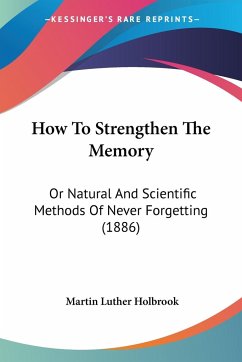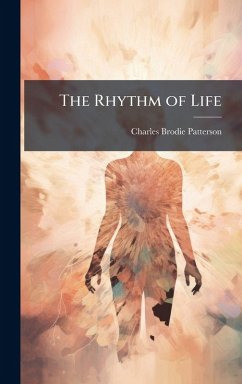
How to Acquire and Strengthen Will-Power
Versandkostenfrei!
Versandfertig in über 4 Wochen
32,99 €
inkl. MwSt.
Weitere Ausgaben:

PAYBACK Punkte
16 °P sammeln!
"How to Acquire and Strengthen Will-Power" by Richard J. Ebbard, originally published in 1907, offers a fascinating glimpse into early 20th-century approaches to self-improvement and mental well-being. Subtitled "Modern Psycho-Therapy. a Specific Remedy for Neurasthenia and Nervous Diseases. a Rational Course of Training of Volition and Development of Energy After the Methods of the Nancy School," this book provides a comprehensive guide to cultivating willpower and overcoming nervous ailments. Ebbard delves into practical methods for training volition and developing inner strength, drawing on...
"How to Acquire and Strengthen Will-Power" by Richard J. Ebbard, originally published in 1907, offers a fascinating glimpse into early 20th-century approaches to self-improvement and mental well-being. Subtitled "Modern Psycho-Therapy. a Specific Remedy for Neurasthenia and Nervous Diseases. a Rational Course of Training of Volition and Development of Energy After the Methods of the Nancy School," this book provides a comprehensive guide to cultivating willpower and overcoming nervous ailments. Ebbard delves into practical methods for training volition and developing inner strength, drawing on the principles of the Nancy School of psycho-therapy. Readers seeking historical context on the evolution of psychological techniques, or those interested in time-tested strategies for personal development, will find this book a valuable resource. Discover the enduring wisdom within these pages and explore techniques for harnessing your inner potential and achieving a stronger, more resilient self. This work has been selected by scholars as being culturally important, and is part of the knowledge base of civilization as we know it. This work was reproduced from the original artifact, and remains as true to the original work as possible. Therefore, you will see the original copyright references, library stamps (as most of these works have been housed in our most important libraries around the world), and other notations in the work. This work is in the public domain in the United States of America, and possibly other nations. Within the United States, you may freely copy and distribute this work, as no entity (individual or corporate) has a copyright on the body of the work. As a reproduction of a historical artifact, this work may contain missing or blurred pages, poor pictures, errant marks, etc. Scholars believe, and we concur, that this work is important enough to be preserved, reproduced, and made generally available to the public. We appreciate your support of the preservation process, and thank you for being an important part of keeping this knowledge alive and relevant.












